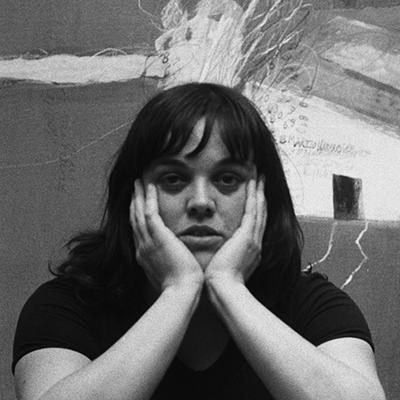What the author says...
Barcelona, 1970. Writer, journalist and peace activist
I like telling stories and, when you write, what you try to do is get as close as possible to another human being and slow down time for that person, then you have the ability to observe them with a much greater degree of accuracy than if you were far away and time was running at normal speed. And that way you can learn more about human nature. Finding out about someone other than yourself is one of the incredible opportunities art gives you. I'm extremely interested in reading matter through which the reader is able to get a sense of writing. It thrills and interests me to think that the reader and writer are able to come to an agreement. And because literature is not sedate, these resources serve to suddenly tell you to 'stop', and the reader stops. Punctuation also makes that possible, such as, for example, finishing a sentence without a full stop, which has a narrative purpose, or beginning a sentence in lowercase.
I don't really believe in inspiration. I am interested in topics: big cities, such as Mexico City or Istanbul, paternity, violence, Mexican history, the history of large-scale modes of transport – such as the train, plane or ship – and major infrastructure, huge constructions, which I am absolutely fascinated by. I'm likely to travel to the other side of the country if they are building a motorway, just to see it. If I hadn't become a writer, I'd have been a civil engineer!
Oriol Osan. “Lolita Bosch. L’enginyera de lletres”, Benzina, n. 48 (2010).
What the critics say...
If what distinguishes literature from typing is the jolt we feel in the pit of our stomach when reading, then we can indeed confirm that Elisa Kiseljak by Lolita Bosch (Barcelona, 1970) is literature.
It is also possible to read the book as a prodigy of management and structure. In the first chapter, an external narrator, as smooth and cold as a silk handkerchief, tells us the facts. In the second chapter, the narrator is replaced by the discourse of a character in a state of shock. Here Lolita Bosch excels in describing the indescribable, ie she assumes the alteration of consciousness with authenticity: the problem is solved with sentences covering three pages, flooded with conjunctions, halfway between delirium and experiment. The third chapter takes us to familiar ground: inner workings viewed from the outside, the reasoning that attempts to later establish itself as interpreter. Elisa Kiseljak ends with an essay on innocence written about courage.
Pain is one of the enduring themes of our time, omnipresent and taboo. The temptation is to treat it from the comfortable elegance of the ellipsis. What is impressive about Lolita Bosch is that she has faced it with audacity, through a calculated balance of detail and abstraction, of fiction and biography and, above all, that she has correctly identified the range of registers demanded by the story. She has written, in my opinion, about forgetting, about abjection, about silence, about the ways of dying. There is pain in her book but there is also narrative strategy, which is a combination not often seen.
Vicenç Pagès Jordà. “Descriure l’indescriptible”, El Periódico de Catalunya. Llibres (29/12/2005).
With titles such as Elisa Kiseljak and Insòlit somni, insòlita veritat [Incredible Dream, Incredible Truth], Lolita Bosch (Barcelona, 1970) has already demonstrated her ability to explore new aesthetic lines of literature without, in achieving this feat, having to fall into the black holes that have devoured so many unfortunate attempts at breaking the mould: abusing the author's official privileges and dressing up as experimental literature that which is nothing more than a catastrophic train wreck.
La família del meu pare [My Father’s Family] employs unusual methods to gain narrative access to the old substance of prototypically biographical material. [...] Born of an intimate vital order, La família del meu pare signifies a reconstruction of Self. That is why the author repeats: "I was not born in a place but in a story", because the field of evoking the past always refers to the changing context of a reality that can only be attained through storytelling. [...] Bosch delivers a novel with a structure like a rhizome, breaking the classic hierarchical subordination of chronological deployment and opting for a narrative with numerous focal points, in which the search for answers to questions about her family's past will be far superior to the effective responses to these questions. Thus begins a powerful dissolution of reality. All branches of the novel suggest epicentres focused on some kind of truth.
Lluís Muntada. “La fundació de la veritat”, El País. Quadern (16/10/2008).
If anything characterizes her, however, it is a command of language, rhythm, tempo, and a sterile, pared-back style, reduced to the bare minimum so that the reader will not be confused or stray from what it is she wants to express. A style that draws directly from the orality in terms of vocabulary, the mixing of narrative tenses and the removal of graphic resources that enhance the torrential feeling of her discourse and demonstrate that there are many ways in which to explain yourself without having to fall back on established models. [...] She presents herself as an avid storyteller of universal themes. You only need to look at Qui vam ser [Who We Were]: a story of a failed relationship that allows her to explore what is left of those people we once were. Bosch develops a mature and uninhibited reflection on the existential void with an innovative and original voice that leaves you wanting more.
Alba Alsina. “Amors morts”, Avui Cultura (01/11/2006).




